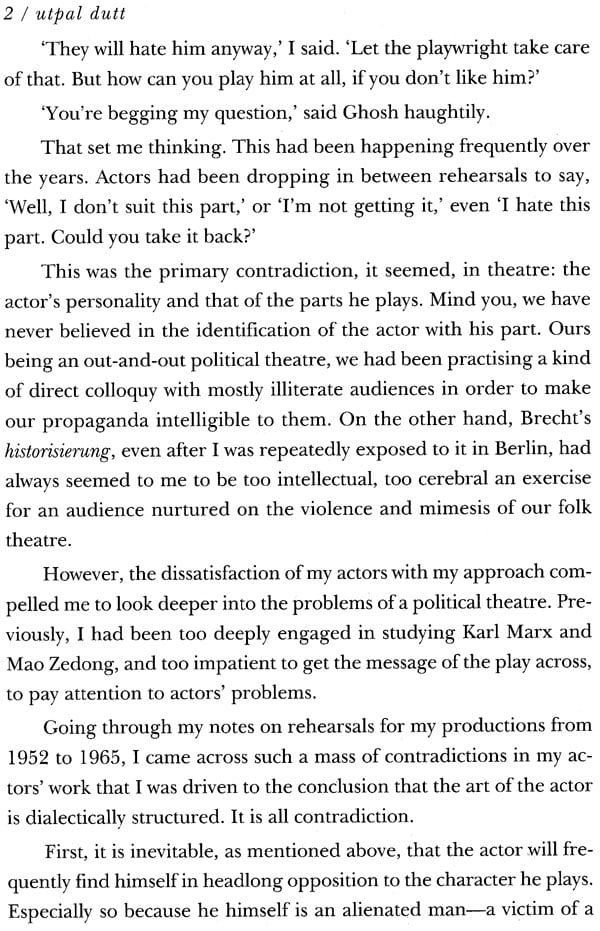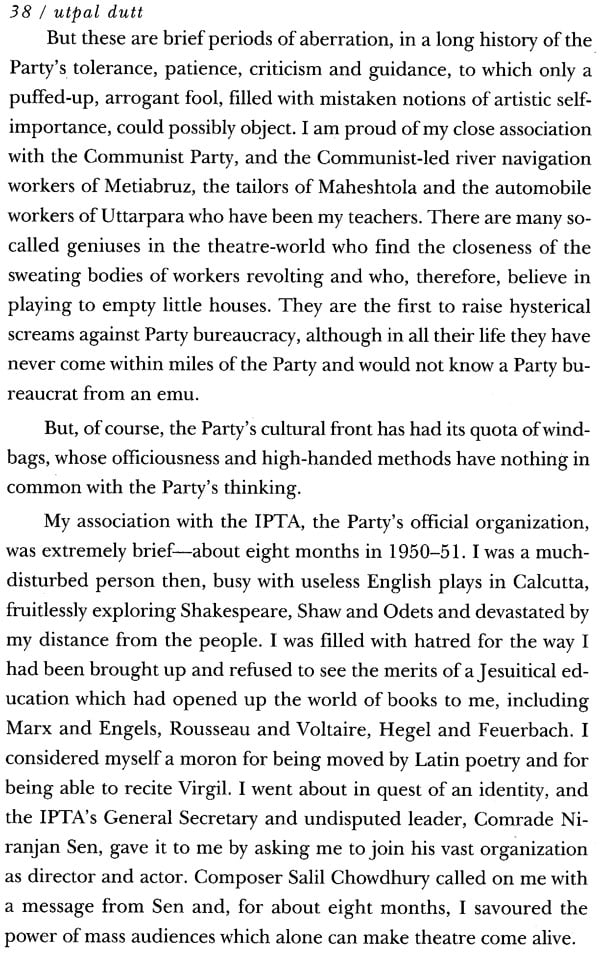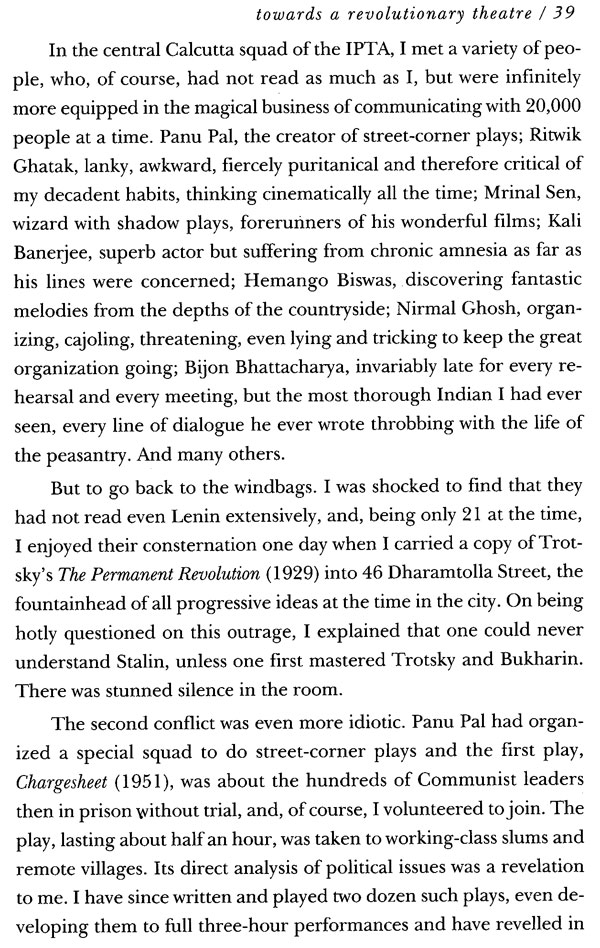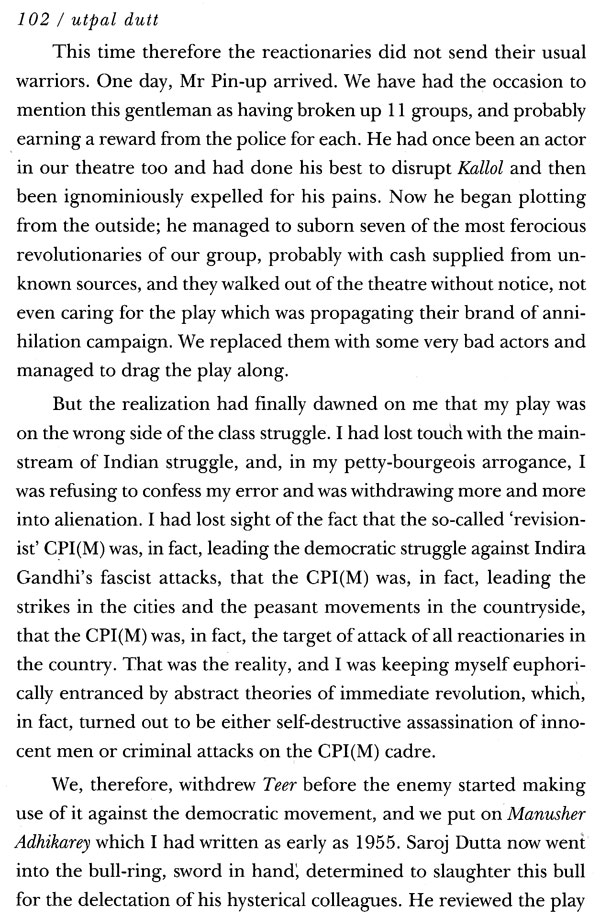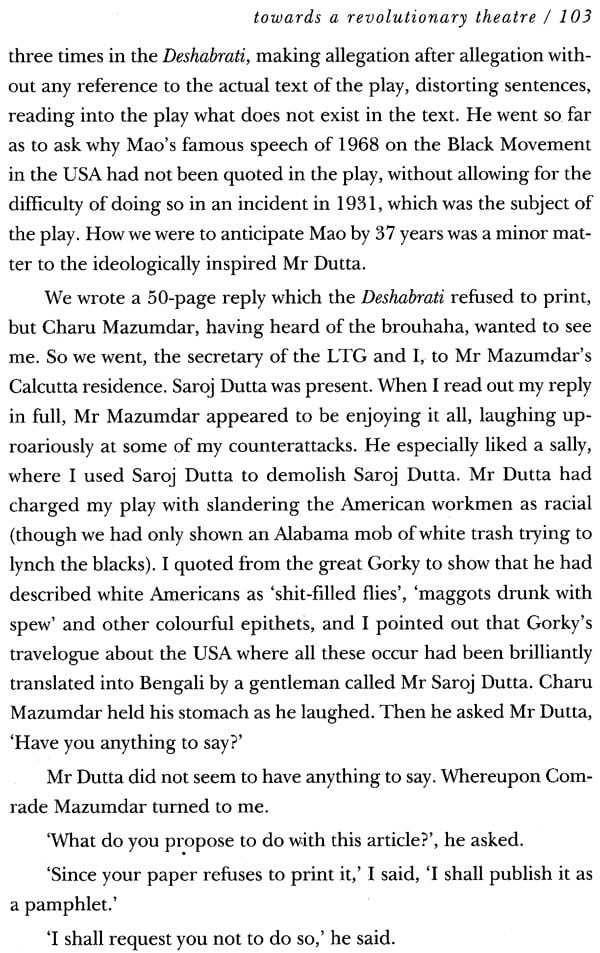
Utpal Dutt Towards A Revolutionary Theatre
Book Specification
| Item Code: | NAQ937 |
| Author: | Utpal Dutt |
| Publisher: | Seagull Books |
| Language: | English |
| Edition: | 2022 |
| ISBN: | 9788170463405 |
| Pages: | 180 |
| Cover: | PAPERBACK |
| Other Details | 8.50 X 5.50 inch |
| Weight | 240 gm |
Book Description
Utpal Dutt (1929-93), playwright, director and actor, an inspiration and role model for the activist theatre person. Whether through the proscenium theatre, street performance, the traditional strolling the-atre-in-the-round, or cinema, Dun tried to take revolutionary theatre to the widest mass of people, with political messages for every turning point in a highly sensitive and rapidly changing political scenario, redefining his relationship with the political leadership again and again, getting into violent confrontations with various forces, being driven underground, and getting jailed in the process. His legacy of plays and other writing remain a valuable chapter in Indian theatre history.
Here, Dutt explores the contradictions between an actor's personality and his roles as he is forced to juggle the socio-political influences of his times. He debates on 'political theatre', attempting to place revolution in its historical perspective and presents his own views on matters revolutionary, drawing upon his incredible reading of world history, theatre and literature. He also writes of his association with the Indian People's Theatre Association and the Little Theatre Group, his Marxist leanings and his determination to make a mark in 'active politics' through his entire body of creative output.
Born in 1929 in Barishal (now in Bangladesh), Utpal Dutt began his the atrical career in college at St Xavier's, Calcutta, playing in selected scenes from Romeo =gullet, Macbeth and Richard III. In 1947, he found his 'guru'-Geoffrey Kendal, and his life with the strolling Kendals lasted 'from August 1947 to the end of 1948, and again from February 1953 to the end of 1954'. Duct's first significant directorial experiment was a mod-ern-dress version of Julius Caesar in 1949, for the group Amateur Shake-speareans. This group was later renamed Little Theatre Group in 1950, and moved to productions in Bengali. Real popular success came with Angar in 1959 at Minerva (taken on a 'long lease' in 1959), followed by Angar, Ferari Fouj, Titash and Kallol. Kallol made a savage criticism of the Congress, the party in power in 1965, and Dutt was immediately arrested and detained in Presidency Jail without trial. Released in March 1966, he did a series of documentary plays at Minerva and joined the Naxalite movement, going underground in 1967. Arrested in Bombay in 1968, when he turned up for the shooting of The Guru, he was finally released on the intervention of his American producers. In the 1968-69 season, he took up his first assignment in the Jatra and went on to write and direct Rifle. Between 1968 and 1972, he wrote and directed 17 Jatra plays. Wanting to explore the form further, he formed the Vivek Jatra Samaj (for rural and suburban audiences) and People's Little Theatre for the urban proscenium. PLT survived and it was the immediate success of its Tiner Talwar in 1971 that ensured a second run for Dutt. PLT went on to deliver more hits, including Barricade (1972) and Duswaimer Nagari (1974).
**Contents and Sample Pages**


